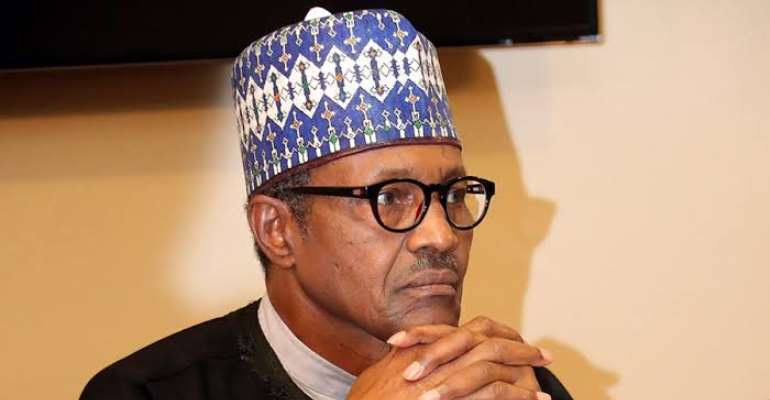Governance System In Other Climes:lesson For Nigeria

Governance, in a lay man’s definition, presupposes ‘the process of decision making and the process by which decisions are implemented (or not implemented)’ {UNESCAP 2009}. It occurs both formally and informally. For instance, a family structure exemplifies an embodiment of informal governance where the father, as head of family, acquires certain rights and privileges in directing the affairs of other members of the family. Similarly, in a formal democratic governance, an elected official, who may be a political office holder (a president, a governor, a mayor) or their appointed representatives such as a cabinet member, a council member or their political advisers acquire through constitutional laws certain responsibilities and authorities for provision of public good. Governance system does not exist in a vacuum but in consonance with certain principles and legislations collectively known as politico-economic ethos. This ethos is a universally applicable set of principles which govern democratic practice and includes participation (or inclusiveness), rule of law, consensus building, equity, effectiveness and efficiency, transparency and accountability, responsiveness.
An indispensable political economic ethos, as a precursor ofgood governance, is effectiveness and efficiency of macro-economic workings; vis a vis government policy as it affects economic production, distribution and exchange. This manifests in modern economies practice of mixed economy which features both central planning and free market. Modern day functional economies are a hybrid of deliberate governmental interventionism (market– based or social incentives) and the private enterprise (laisse faire). In practice, the central authority (government) provides a level economic playground (infrastructure and legislation) which the private enterprise keys into with view of economic participation and competition. Furthermore, functional governance adopts a conscious politico-economic doctrine (theory), as circumstance necessitates, in partaking of day-to-day politico-economic decisions. This broadly sums to desirable fiscal and monetary policies of governments.
All economies, including the developed and the under-developed ones have respective politico-economic policies which they pursue. However, functional economies such as the United States of America, China and India, to mention a few, constantly improve on their politico - economic policies, as precursor for innovations and advancement of their economic means of production, distribution and exchange. This thus guarantees effective and efficient allocation of economic resources as fore-runner of economic growth.
According to data from the International Monetary Fund, the United States of America nominal GDP in 2020 was $22.2 trillion; GDP per capita was $52, 444 as of 2017; with 1.9% growth from previous year. Similarly, it’s real economic value, comprising trade in goods and services as of 2018, was $54.2 trillion. As well, its financial institutions’ assets as of 2020 were $20 trillion. More importantly, the United States of America’s consumer spending as of 2018 was put at 68% of its economy. It is imperative to note that this lofty attainmentwas made possible through a vibrant market – based economic practice with little guided regulation such ascontinuous creation of employment, payment of unemployment benefits and infrastructure investment. The economic benefits from this for the United States was 160.9mstrong labour force with consequent total household net worth of $99 trillion (2017).
In the same vein, the Republic of China is currently referred to as the manufacturing hub of the world producing an array of products (both light and heavy goods) ranging from personal computers, ships, aircrafts etc. However, it is more reputable for its service-sector output which accounted for 51% of GDP as of 2015. These include financial and ‘other’ services such as health care and education and tourism as main drivers of Chinese economy. Empirically, China has a nominal GDP of $15.2 trillion and GDP per capita of $10,839 as of 2020; with average growth rate of 10% yearly. The total real assets as of 2012 was $ 20.2 trillion (127.3 trillion Yuan). Additionally, China has a bubbling property investment, especially real estate; with private investment in real estate as high as 62% and real estate’s composition of economy up to almost 20%. This obviously manifests in China’s high price - to income and price -to rent ratios for property.
Significantly and comparatively to the United States of America, China has benefitted a lot from its near full employment labour force (791million work force, as of 2005) which had translated into average wealth per adult aged 20 and above ($20,452 or 128,848 Yuan as of 2012), according to the Global Wealth Data Book (2012). In addition, China undertook a deliberate strategic national policy formulation, precisely a five -year actionable plan (2011 – 2015) with a view to revamping its Trade – in – Services sector. In fact, it was common knowledge the Chinese government went all out to ensure successful implementation of the national policy blue print, particularly in terms of increasing its technological and knowledge intensity to enhance international competitiveness. All this feat was possible through the Chinese economic reforms (1978) which transformed it from a closed economy to an open one (albeit with central authority tendency) and remaining so to date.
Another favourably competitive economy on the international scene is the Indian economy. It was regarded as the fifth largest economy in the world with nominal GDP of £2.6 trillion (2020) and third largest by purchasing power parity ($8.6 trillion). However, it ranked low in nominal income per capita ($1,670, 2016) due to its explosive population. In recent years (2014 – 2018), India’s economy was regarded as the fastest growing in th
